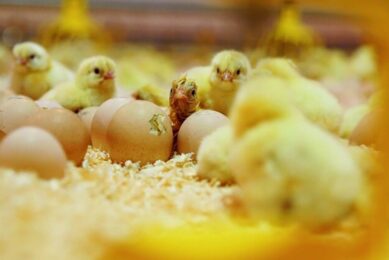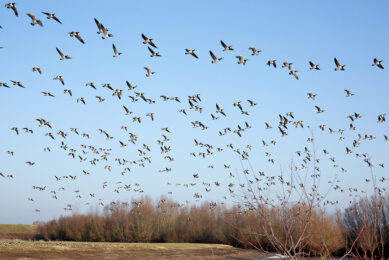Russia cuts US poultry 2010 import quotas
Russia, a top market for US meat, has cut its 2010 import quotas, meaning fewer pork and poultry imports will be allowed in at low duty rates compared to 2009.
US industry officials and analysts said they were disappointed in the quota cuts, but hoped Russia might raise the volumes during the year. Russia set its annual import quota for US poultry at 600,000 tonnes, down from 750,000 tonnes in 2009.
Poultry faces further hits in 2011 and 2012
The 2010 quota cut for poultry was in line with what the US industry expected, said Jim Sumner, president of the USA Poultry and Egg Export Council. “We would like for it to be more, but we realize that Russia is continually increasing its domestic production and they look at imports as a way of balancing their supply,” Sumner said.
US chicken companies should be able to make up for the smaller shipments to Russia, said Paul Aho, economist at the consulting firm Poultry Perspective. “I think they can find other markets to sell to, because the world economies are improving,” he said.
But Russia also said it plans to further cut its quota for US poultry in 2011 to 446,400 tonnes, and again in 2012 to 409,200 tonnes.”We hope these numbers are preliminary and that they’ll be adjusted upward,” Sumner said, noting the industry had anticipated a 2011 quota of 550,000 tonnes.
Poultry sector eyes chlorine issue
The poultry industry and top US government officials have also stepped up efforts to work with Russian counterparts on concerns about antimicrobial chlorine rinses, routinely used in US plants to kill pathogens that can cause food poisoning.
The European Union bans imports of poultry treated with the rinses. The United States has launched a legal complaint about the ban at the World Trade Organization. Russia had threatened a year ago to cut off imports of US poultry over the chlorine issue, but postponed its decision.
The issue remains unsettled, and the US industry on Friday offered to conduct a joint study with Russian health officials to assure them the product is safe. If not resolved by December 31, US shipments could be disrupted, Sumner said, noting he was confident the two countries could find a way to move forward.
“Russia needs our product to balance their supply, and there is no other country capable of providing the volume of product,” he said.
Join 31,000+ subscribers
Subscribe to our newsletter to stay updated about all the need-to-know content in the poultry sector, three times a week. Beheer
Beheer








 WP Admin
WP Admin  Bewerk bericht
Bewerk bericht